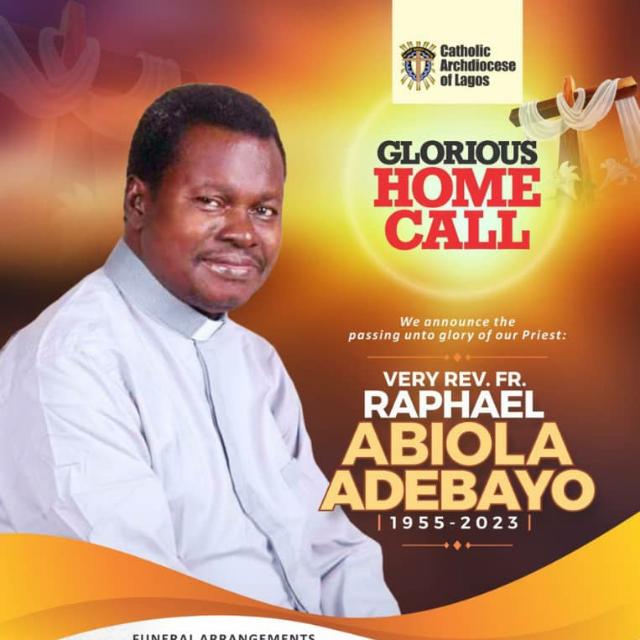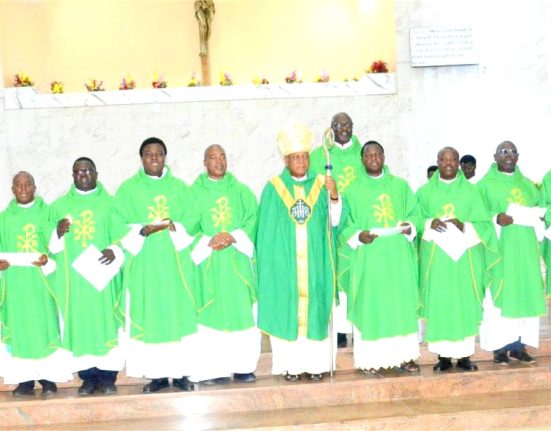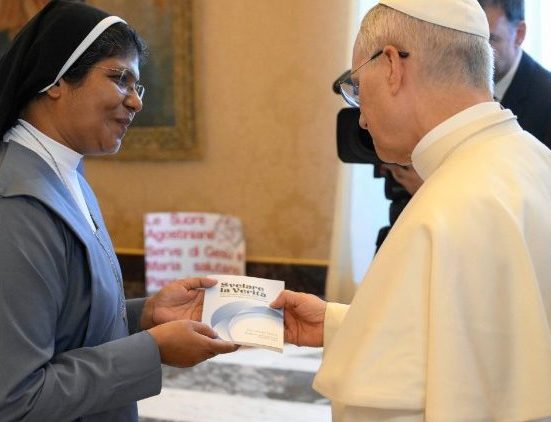Holy Thursday
“Do you know what I have done to you? You call me Teacher and Lord — and you are right, for that is what I am. So if I, your Lord and Teacher, have washed your feet, you also ought to wash one another’s feet. For I have set you an example that you also should do as I have done to you”!
In the name of the Father and of the Son and of the Holy Spirit: Amen! Good evening my brothers and sisters in the Lord, Today, as most of us have known by now, is Holy Thursday.
The Eucharist is Jesus’ last will. Will is a legal document or spoken words on how to deal with one’s remains and properties after one’s death. In the olden days up to the time of Jesus’ earthly life, Wills were not written. People rather say their will usually as their last words before death. Traditionally, when the head of the family is about to die, he would normally gather his family to tell them the most important truths of their life and his last will.
On this Holy Thursday evening, the night before Jesus died, he called his apostles together to the Upper Room for the Passover Meal. They were his closest associates. But he acted more than he spoke – action speaks louder than words.As described in the First Reading of today’s Mass, at the centre of the Passover Meal is the lamb as the symbol of Israel’s redemption from slavery in Egypt. It was the blood of the lamb slain for the Passover Meal which was sprayed on the doorposts that secured the homes of the Jews as the angel of death passed over their homes to visit the homes of the Egyptians. The Passover Meal thus became a memorial of thanksgiving for Israel’s liberation from Egypt but it also embodies the hope of Israel’s definitive liberation, when Israel would truly be free at last. Jesus celebrated the Passover without a Lamb, or, rather taking the place of the lamb, he gave himself, his Body and Blood (in the form of bread and wine) in anticipation of his imminent sacrificial death on the cross. Thus, he makes the Eucharist the new Passover. He is the awaited true Lamb as John the Baptist had introduced him at the beginning of his public ministry: “Behold, the Lamb of God, who takes away the sin of the world!” (John 1:29). For the people, the ultimate liberation of Israel remains political. For Jesus however, it is essentially freedom from spiritual bondage to which sin enslaves people. In the new Passover, the Eucharist, in which he empties himself for others, offering his Body and pouring out his precious Blood in anticipation of the cross, Jesus sums up the whole meaning and purpose of his mission on earth which is to teach that the only path to real life and happiness is the path of unselfish love. Every act of unselfish love is a little dying to selfishness. In such dying is the germ of happiness and life promised to those who are not afraid to walk the path of Jesus.
Following the new Passover Meal (the Eucharist), Jesus used another gesture to profoundly drive home this message; he washed the feet of his disciples and enjoined them to do the same for one another. So, how do the two rituals relate? Some historical background of the life of the people in time of Jesus will be useful here. Life in Palestine in the time of Jesus was hard.
The popular means of transport was by feet. People walked long distances on rough, dusty roads to go from Galilee to Jerusalem, for example, travelers often arrived at their destinations with sore and aching feet.
As a sign of hospitality, the host would see to it that his guests were given a warm foot bath and massage as a way of relieving their aches and pains. This was usually done by the house servants or slaves.
This service of bathing and soothing the tired feet were also provided by the rest houses or inns found at strategic locations along the major roads and highways. Travelers who are worn out along the way could go into these rest houses and have food and foot bath. Their energy thus restored they would then be able to continue and complete their long journey. That is how such rest houses along the way got the name “restaurants” -they restored strength to tired and exhausted travelers on the way. The disciples would have understood Jesus washing their feet in the light of this cultural background. And for us it is a pointer to the meaning of the Eucharist Jesus instituted which we celebrate on this day.Understood in the light of the washing of feet, the Eucharist is a place of restoration for people on the way. The life of a Christian in the world is a pilgrimage, a long, hard journey. Along the way we get tired and worn out and we are tempted to give up and turn back. But Jesus has provided us with the Eucharist as a place where we can go in to bathe our aching feet and to be refreshed in body and soul for the journey that is still ahead. When we give communion to a sick person we call it “viaticum” which means “provisions for a journey.”
The Eucharist is always a viaticum: in the Eucharist we derive strength to continue our upward journey towards God almighty.
In the Gospel story of today, we find that Peter was uncomfortable with having Jesus wash his feet. Peter, who was somewhat of an activist, would have preferred to see himself doing the washing, washing the feet of Jesus and even of the other disciples. Sometimes it is harder to remain passive and allow someone else to bathe us than it is to bathe someone else, as every toddler can tell you. But having our feet washed and washing the feet of others are two sides of the same coin we call the Christian life.
The first and most essential part is to let the Lord wash us. As Jesus said to Peter, “Unless I wash you, you have no share with me” (John 13:8). First, the Lord washes us clean so that we belong to the Lord. Only then are we qualified and empowered to wash the feet of our sisters and brothers in the Lord. When this truth dawned on Peter, he overcame his reluctance and cried out, “Lord, not my feet only but also my hands and my head!” (John 13: 9). For this to happen, all that the Lord needs from us is simply for us to be there, to present ourselves to him and to let him wash us.The other side of the coin, which is equally important, is that after our feet have been washed by the Lord, we must go and wash the feet of others. After Jesus had washed his disciples’ feet, he said to them: “Do you know what I have done to you? You call me Teacher and Lord -and you are right, for that is what I am. So if I, your Lord and Teacher, have washed your feet, you also ought to wash one another’s feet. For I have set you an example, that you also should do as I have done to you” (John 13:12-15).Jesus establishes a close link between him washing the disciples’ feet and the disciples washing the feet of others. If the Eucharist is the place where the Lord washes our feet, our daily life is the place where we ought to wash the feet of others. Eucharist leads to life and life leads to Eucharist. True Eucharistic piety must lead to service of others. Jesus who broke the bread of the Eucharist also washed the feet of his disciples. We must follow his example both at the altar of the Eucharist and at the altar of life. May the Lord bless his words in our hearts!Have a wonderful and blessed Triduum!
+Ab Matthew AUDU Jos











Leave feedback about this